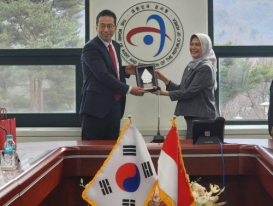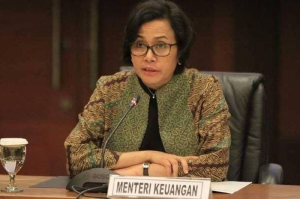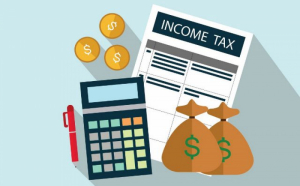World Bank highlights Indonesia's low tax revenue
The World Bank has highlighted Indonesia's low tax revenue performance − apparently the lowest in the world − in a report entitled "Estimating Value Added Tax (PPN) and Corporate Income Tax (PPh) Gaps in Indonesia" released on March 2, 2025.
The World Bank said that Indonesia's tax revenue ratio to Gross Domestic Product (GDP) only reached 9.1 percent in 2021, far below the average for middle-income countries in Southeast Asia region.
In comparison, Cambodia's tax revenue ratio reached 18 percent, Malaysia 11.9 percent, the Philippines 15.2 percent, Thailand 15.7 percent, and Vietnam 14.7 percent.
The World Bank also noted that Indonesia's tax ratio has decreased by around 2.1 percent over the past decade, with a sharp decline occurring in 2020 due to the COVID-19 pandemic.
Below potential
The World Bank said that Value Added Tax (PPN) and Corporate Income Tax (PPh), which are the main sources of tax revenue, are still performing below their potential. In 2021, PPN and PPh only contributed around 66 percent of total tax collection, or around 6 percent of GDP.
The report also revealed several factors that caused low tax revenue in Indonesia, including: Low tax compliance, relatively low effective tax rates, and a narrow tax base.
The World Bank warned that Indonesia's tax collection efficiency still lags behind neighboring countries and the tax gap continues to widen. Indonesia's tax efficiency score since 2015 has even been among the lowest among middle-income countries.
Tax reform
The Indonesian government has actually taken steps to increase tax revenue through the Harmonization of Tax Regulations Law (UU HPP) which was passed in October 2021. Several policies that have been implemented include:
- Increase in the standard VAT rate
- Elimination of a number of tax exemptions
- Cancellation of the reduction in the Corporate Income Tax rate
The implementation of the HPP Law is estimated to increase tax revenue by 0.7 percent to 1.2 percent of GDP per year in the 2022–2025 period.
However, the World Bank noted that challenges in tax collection will continue and further measures are needed to improve the effectiveness of Indonesia's tax system.
Tag
Already have an account? Sign In
-
Start reading
Freemium
-
Monthly Subscription
30% OFF$26.03
$37.19/MonthCancel anytime
This offer is open to all new subscribers!
Subscribe now -
Yearly Subscription
33% OFF$228.13
$340.5/YearCancel anytime
This offer is open to all new subscribers!
Subscribe now






